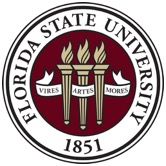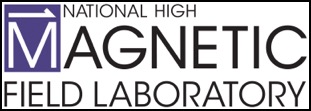Welcome to my homepage!
My name is Rob Schurko, and I am a professor in the Department of Chemistry and Biochemistry at Florida State University in Tallahassee, FL and Director of the NMR & MRI User Program at the National High Magnetic Field Laboratory at Florida State University.
My research interests focus upon applications of solid-state nuclear magnetic resonance (SSNMR), X-ray crystallography, and quantum chemical calculations to the study of inorganic materials, organometallic complexes and organic solids (e.g., pharmaceuticals). I am also very interested in development and applications of special pulse sequences or the acquisition of solid-state NMR spectra of unreceptive quadrupolar and spin-1/2 nuclei.
Employment opportunity: Postdoctoral Research Associate - National High Magnetic Field Laboratory and Florida State University: Platinum Group Elements
We are searching for a postdoctoral research associate to lead efforts on a DOE-sponsored project, “Unraveling the Mysteries of the Platinum Group Elements (DE-SC0022310)”, which is to be conducted at the National High Magnetic Field Laboratory (MagLab) and Florida State University (FSU) in Tallahassee, FL. This project focuses upon the exploration of structure and bonding in complexes involving the platinum group elements (PGEs), in an effort to ultimately find alternatives to PGEs (due to their relative scarcity and great expense) for use in a variety of applications in chemistry and materials science. Up to three years of funding is available for this position. This work is being done in collaboration with the research group of Prof. Jochen Austchbach (U. Buffalo).
Potential candidates must have extensive experience in solid-state NMR spectroscopy and/or quantum computational chemistry as related to NMR interactions. The successful candidate will perform solid-state NMR experiments on a series of compounds involving NMR-active isotopes from the platinum group elements, including 195Pt, 103Rh, 99Ru, and 105Pd, as well as numerous other multinuclear SSNMR experiments on other nuclides in PGE-bound ligands. The candidate will also conduct first-principles computations of chemical shift tensors and electric field gradient tensors, in order to explore relationships between structure, bonding, and NMR interaction tensors.
The National High Magnetic Field Laboratory is a world-leading facility focusing on the use of high magnetic fields for research in physics, chemistry, and biology. The NMR division is Tallahassee is equipped with the highest magnetic field NMR spectrometer in the world, the Series Connected Hybrid, which operates at 35.2 T (1.5 GHz), along with an ultra-wide bore 900 MHz NMR/MRI spectrometer, a 600 MHz DNP NMR spectrometer, one 830 MHz and two 800 MHz spectrometers, several mid-field instruments, and a collection of custom, home-built probes that have an assortment of capabilities and are tuneable to a wide range of frequencies. Florida State University is one of the elite research universities in the United States, and designated as a preeminent university in the State of Florida.
Interested candidates should contact Prof. Robert Schurko at rschurko@fsu.edu, and provide a full CV with a list of publications.
FSU and MagLab
As of August 2019, I have taken up a position as a Professor of Chemistry in the Department of Chemistry and Biochemistry at Florida State University in Tallahassee, FL. I am jointly appointed with the National High Magnetic Field Laboratory (NHMFL or MagLab), where my research group has access to some of the best instrumentation and people involved in solid-state NMR research in the world! As of May 2020, I am the Director of the NMR & MRI User Program at the National High Magnetic Field Laboratory at Florida State University.


Interested in NMR?
I am currently looking for students interested in working on their Ph.D. in Chemistry in the area of solid-state NMR starting in Jan. 2022 or later. Positions are now available for grad students interested in projects on pharmaceuticals, supramolecular and framework materials, nanoparticles and catalysts. Graduate students with interest in physical, computational, inorganic, organic, materials and/or analytical chemistry are encouraged to apply. If interested, please contact me via email.
Please note, I only consider postdoc applications from students with extensive background in SSNMR.
Contact Information
The best way to reach me is via email or the Contact Page.
Robert W. Schurko, Professor of Chemistry
Department of Chemistry and Biochemistry
Florida State University
Chemical Sciences Laboratory (CSL) 3806
102 Varsity Way, Tallahassee, FL 32306-4390
Phone: 850-645-8614
Email: rschurko@fsu.edu
Web: https://www.chem.fsu.edu/~schurko/
Robert W. Schurko
Director of the NMR & MRI User Program at the National High Magnetic Field Laboratory
Florida State University
MagLab (National High Magnetic Field Laboratory)
1800 E Paul Dirac Dr, Tallahassee, FL 32310
Web: https://nationalmaglab.org/user-facilities/nmr-mri
MagLab Leadership: https://nationalmaglab.org/about/organization/lab-leadership
